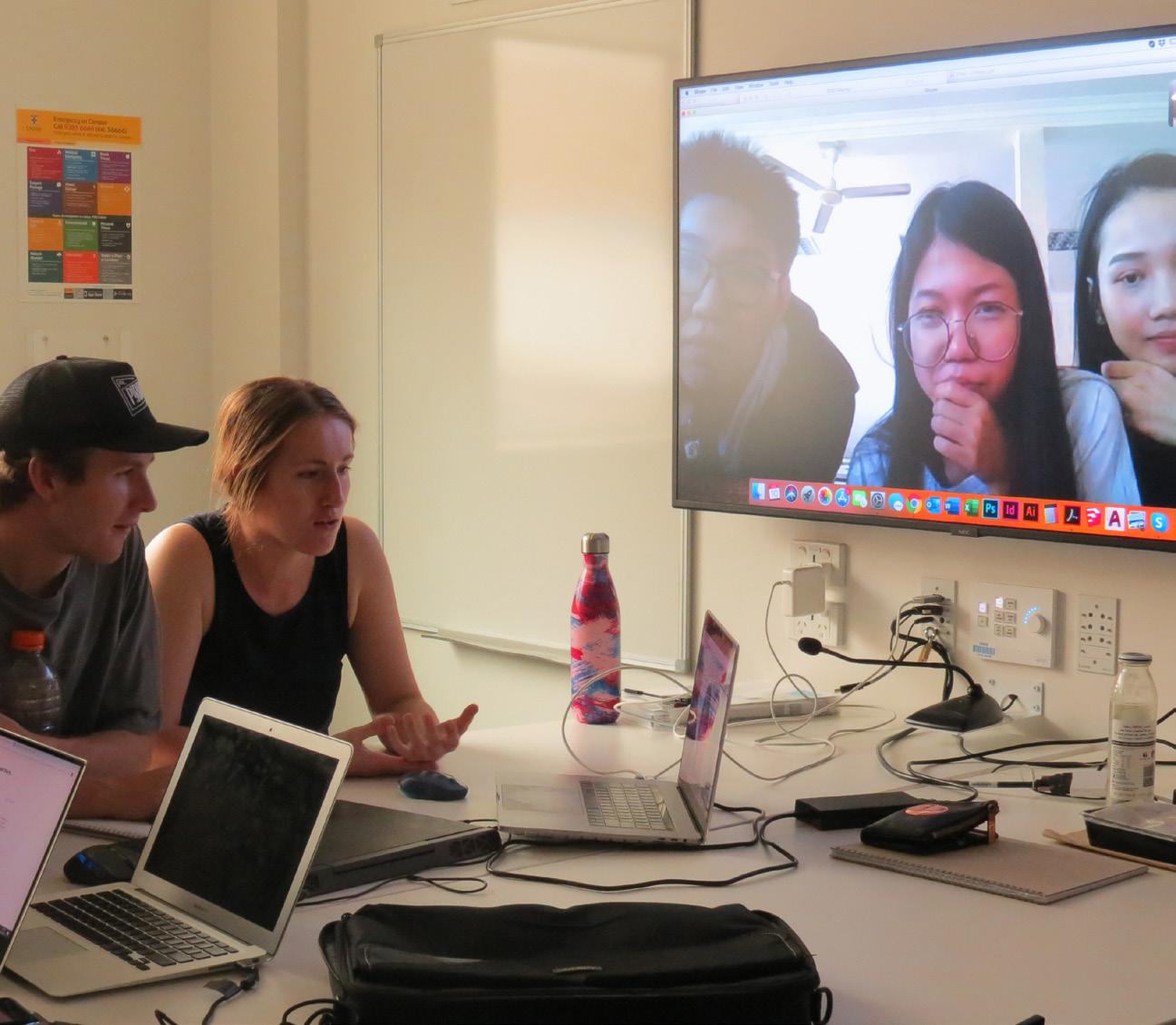
1 minute read
build relationships exchange knowledge
The program is cognisant of the history of colonisercolonised power dynamics in the Global South and the educational structures that can sustain these ways of knowing and operating (Martin & Pirbhai-Illich, 2015). Aiming to ‘solve’ perceived urban challenges or ‘save’ those perceived to be in need are not the aims of the course. Rather, students are introduced to the “cumulative nature of design and planning” that “highlights relationship building rather than merely goal accomplishment” (Hou, 2007). As such, although the content of the course focuses on ways of understanding, and ultimately improving, the way public streets develop, the processes of knowledge exchange and relationship building through which this occurs are of equal priority in learning tasks. It is also intentional that in this two week course, students engage with public street spaces and the lived experience of their peers, as opposed to a more direct relationship with a particular community group. Such community-based ‘service-learning’ courses often benefit the academic institution more than the partner community, Martin & Pirbhai-Illich (2015) argue such courses can inadvertently perpetuate the server-recipient/ us-them relationship due to students’ lack of understanding of the socio-historical factors that establish inequities.
Hou, J. (2007). Community processes: The catalytic agency of service learning studio. Design studio pedagogy: Horizons for the future, 285-294.
Advertisement
Martin, F., & Pirbhai-Illich, F. (2015). Service learning as post-colonial discourse: Active global citizenship. In Contesting and constructing international perspectives in global education (pp. 133-150). Brill Sense.
Thamrin, D., Wardani, L. K., Sitindjak, R. H. I., & Natadjaja, L. (2019). Experiential Learning through Community Co‐design in Interior Design Pedagogy. International Journal of Art & Design Education, 38(2), 461-477.










